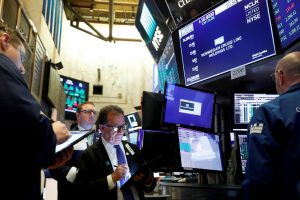
We never knew it, but our economy has been standing upside down for more than a century. Instead of catering to our needs, we had catered to the “needs” of the economy. We worried about growth, production, consumption, and trade deficit or surplus. Somewhere along the way, we had forgotten that the economy was meant to cater to our needs, to see that we had food, clothing, healthcare, housing, and education. If possible, it should also provide us with some pleasant pastime but until COVID-19 came along, we had completely forgotten about it. Now we have been given a chance to straighten up the economy and rearrange our lives in a way that suits our needs.
With today’s technology, there is no need for everyone to work, certainly not the insane amount of hours we had been working until the onset of the lockdown. The average white-collar employee worked far more hours than slaves worked just two centuries ago. It might have made some sense if employees had more freedom or security than slaves, but when the coronavirus crisis shut down the economy, tens of millions of people were left without any security whatsoever—not housing security and not even food security. In other words, yesterday’s slaves are today’s IT professionals, software engineers, freelancers, employees in finance, law, insurance, tourism, and most white-collar professions. In the pursuit of freedom, we had replaced the relative safety of the slave for job titles. But when we needed to fall back on something, we discovered that our titles were completely meaningless. Never mind that they did not make us happy; they did not even give us any security.
The blow that COVID-19 has landed on the economy is humanity’s chance to free itself from the shackles of capitalism. Now is our chance to reevaluate the whole concept of work. Should our job define who we are? Why, for example, should our contribution to society not determine our social status? Why should a lawyer have a higher status than a teacher? Who contributes more to society, the lawyer or the teacher? Instead of appreciating people according to their contribution to society, we appreciate them according to their contribution to themselves. Is it not time we changed our values?
Thanks to technology, very few work hours are needed to provide for the needs of humanity. Within a few years, there will be no jobs the way we think of them today. Simply, there will be no demand for them. Instead of paychecks, governments will provide a basic income or some other sort of secured sustenance to all the residents. This will be necessary in order to prevent complete social collapse.
Then, once people’s livelihood is secured, it will be possible to establish a truly free society, where people work on bolstering their environment rather than their checking accounts.
Secured income frees people to secure their happiness. Therefore, people will focus much more on fostering fulfilling relationships. Professional trainings will make way for social trainings; we will learn the forgotten arts of making friends, of sharing and caring. The end of the reign of the economy is the beginning of the reign of humankind, of human kindness. The coronavirus is not just another virus; it has come to heal humanity, to straighten up our economy and put man on top, rather than money.